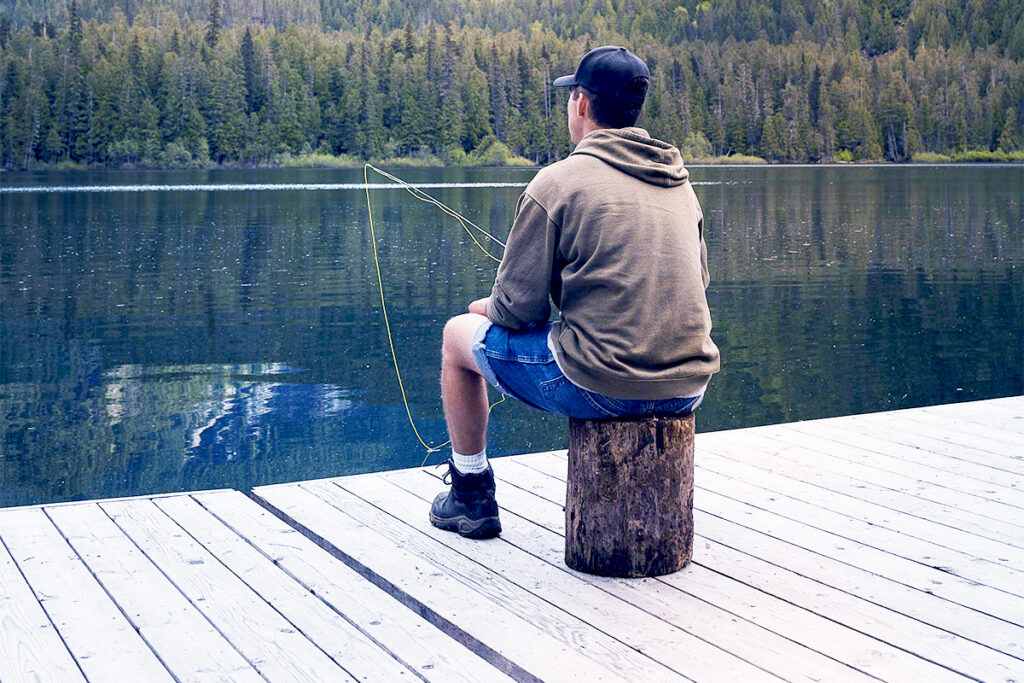We Accept Most Insurance. Please Call to Verify Yours.






![]()







Moving into recovery means making hard choices to take care of yourself and your future. Unfortunately, that won’t always be the most exciting thing. Getting clean and sober may mean giving up parties and excitement – and it may mean building reliable and structured habits that can keep you going even when you’re feeling down. Unfortunately, that can get boring, especially if you’re accustomed to more fun and more ups and downs in your life. That’s so much the case that boredom can actually sabotage your recovery.
However, there are a lot of things you can do to make your life more fun and reduce boredom without relapsing. That might take time and it might mean finding new hobbies that provide the excitement you’re looking for.
However, you should always make sure you’re investing in any new hobby in a responsible way – both for your lifestyle and for your emotional regulation and management.
One of the largest problems of getting clean and sober is that your friends and social groups usually aren’t. This can make hanging out and socializing with people extremely difficult after you go into recovery. Suddenly finding yourself isolated from social events can be extremely hard. The answer is normally to invest in finding new (and sober) social circles where you can have fun without exposure to drugs and alcohol.
That can mean:
Depending on where you are, there are likely to be a lot of social outings built around sobriety. Sober bars are more and more popular. You can even find sober raves and dances. However, if you’re in a rural area, it’s unlikely you’ll find most of these accommodations. That can make life harder, so you’ll likely mostly have to rely on your social group from a self-help group like Alcoholics Anonymous.
If you’re bored because you don’t have enough to do, you can find a new hobby to fill your time. Here, it’s important that you look for something because it’s fun to do. Things like dancing, learning to paint, or bouldering are great examples. In the case of physical activities, they can also help you reach exercise goals. And, they can add a lot of excitement and introduce you to social circles that aren’t about drinking.

In each case, most hobbies have a period where they won’t be fun because you have no skills in them. It’s important to stick to it for a bit to see if you like it before dropping it and looking for something else.


If you’re bored, it’s usually because something is missing. That might be:
It might also be because you’re feeling emotionally blunted, a condition that a lot of people struggle with in early recovery. For example, if you’re accustomed to high amounts of dopamine and serotonin from drug abuse, you might find that life without them is very dull. In most cases, that feeling should go away within 3-6 months of quitting or you should talk to your doctor about depression and treatment for it.
However, if you can recognize something that you aren’t getting enough of in your life, you can take steps to remediate that. For example, if you miss excitement and actually prefer a life where you get to take risks and experience adrenaline rushes, BMX biking or skydiving might be for you. If you miss socializing and hanging out with people, looking for new friends is a good idea. If you’re just short on things to do, you can find new hobbies. If you lack stimulus, you can sign up for classes or look for volunteer work.
Volunteering can help you to fill your time in a constructive, rewarding, and stimulating way. Here, it’s important not to volunteer around people struggling with drugs and alcohol while you’re in early recovery. It can be tempting to try to help people get clean or sober, but you are still vulnerable to relapse. Finding other ways to volunteer will help you protect your sobriety. For example, you can volunteer building homes, in an animal rescue, at a soup kitchen, or even coaching.
Spending your time helping others will be stimulating. However, it is work. That may be hard to balance with an already busy lifestyle of exercise, work, and probably ongoing therapy or counseling, so make sure you don’t overdo it.
Feelings of boredom can mean that you’re feeling burnt out or depressed. That can stem from too much work or from mental health problems. If those problems persist, it’s important to talk to your doctor so that you can work towards finding a solution – whether that’s mental health treatment or lifestyle changes. In some cases, you can fix boredom by changing your life, changing your habits, and adding fun things to do into your life. In others, you might actually need treatment and support for depression.
Building new routines and stabilizing your life is going to be somewhat boring. That’s partially the point. While you can grow to enjoy a comfortable life, moving out of a lifestyle of looking for thrills and being on an emotional rollercoaster will mean that emotional stability and working to ensure things stay good is going to be boring. That will change over time, especially as your health improves enough that you can enjoy the little things of a morning walk or a sunrise as much as you possibly can. In the meantime, it’s important to accept that sometimes life might be boring. If everything is boring, it’s important to look for small ways you can change and improve your schedule. But, if you’re feeling bored because you’re off an emotional rollercoaster for the first time in your life, it’s a good idea to sit back and accept that maybe that’s a good thing. Boredom is difficult to deal with.

However, for many of us, it is something we will have to face as we move into recovery. Taking steps to ensure you have a healthy social life, good habits, and good outlets for fun is important. And, if you’re still struggling after lifestyle changes, it’s important to talk to your doctor and to get help.
If you or a loved one is seeking help for alcohol or other substance abuse, contact us at Stairway Resource Center today. At Stairway Resource Center we provide a 60 to 90-day outpatient program that takes place in an engaging and supportive community setting. We offer dual diagnosis treatment and daily group and individual therapy for our clients, in addition to fun community-based events and activities.